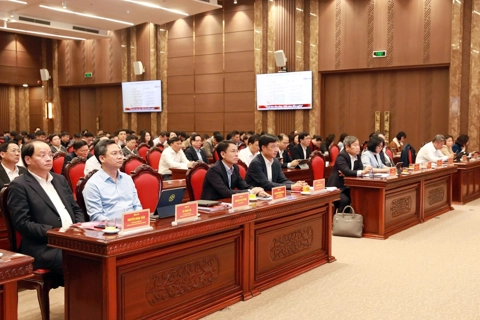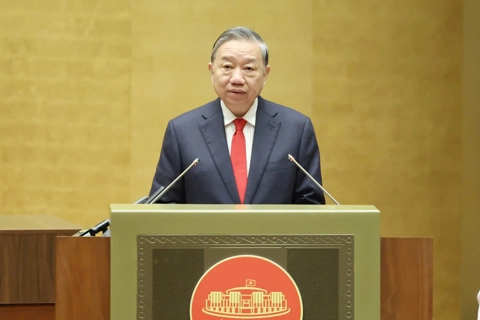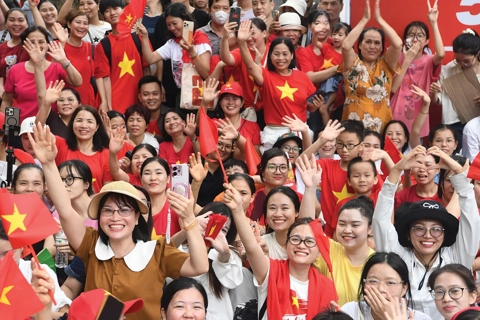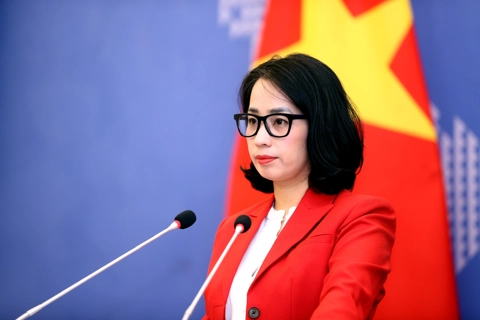Vietnam National Assembly opens 9th session for Constitutional revisions
This is seen as the most legislatively intensive session in the National Assembly’s history, with historic implications for the restructuring of the state apparatus.
THE HANOI TIMES — Vietnam’s 15th National Assembly opened its 9th session today, May 5, marking the start of discussions on amending the 2013 Constitution, streamlining the state apparatus, and reviewing 34 draft laws.
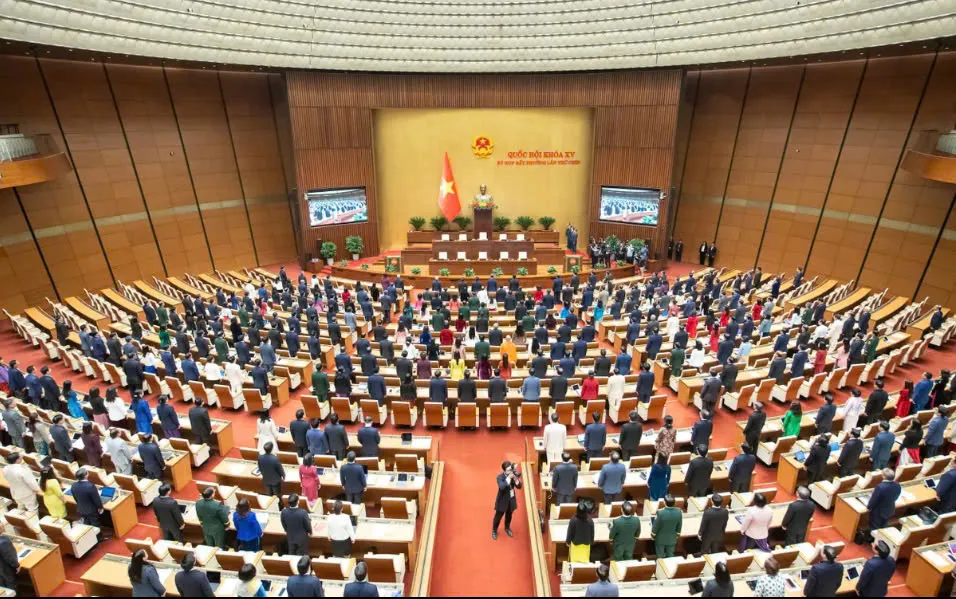
The Vietnam’s 15th National Assembly opened its 9th session in Hanoi and broadcast live on television and radio. Photo: VTV screenshot
The opening session begins in Hanoi and is broadcast live on television and radio.
National Assembly Chairman Tran Thanh Man opened the session with a speech outlining its key priorities, followed by Prime Minister Pham Minh Chinh, who will present a supplementary report on the implementation of the 2024 socio-economic development plan and state budget, as well as an update on developments in the early months of 2025.
Lawmakers also heard a summary of voters’ opinions and recommendations, a report on the government’s responses to issues raised during the 8th session, and a proposal to amend and supplement several provisions of the 2013 Constitution, including a recommendation to establish a Constitutional Amendment Drafting Committee.
Later in the morning, lawmakers will hold group discussions on the proposed constitutional amendments and the formation of the drafting committee. In the afternoon, they will continue deliberations in a plenary session and voted on two key resolutions: the amendment of the Constitution and the establishment of the Drafting Committee.
Also in the afternoon, the National Assembly is scheduled to review proposals and verification reports on several draft laws, including the Law on Personal Data Protection, amendments to the Law on Efficient and Economical Use of Energy, and revisions to the Law on Atomic Energy.
According to the National Assembly’s Standing Committee, over 11 years since the 2013 Constitution took effect, several provisions need updating to meet practical demands, especially regarding the role of the Vietnam Fatherland Front, socio-political organizations, and the current three-tier local government model (province, district, commune).
The Standing Committee noted that the existing system is overly complex and overlapping in functions, failing to take full advantage of technological advances and creating challenges for planning and sustainable development. The existence of numerous small administrative units was said to disperse resources and limit local potential.
In this context, the Party has endorsed a streamlined state structure, a unified two-tier local government model (province and commune), and the consolidation of socio-political organizations under the Vietnam Fatherland Front. The proposed constitutional amendments, affecting around 8 out of 120 articles, focus on two main priorities: strengthening the role of the Fatherland Front and establishing a two-tier local government model, with transitional provisions to ensure uninterrupted governance.
The 9th session will take place in two phases (May 5–29 and June 11–30), totaling 37 working days. The National Assembly is scheduled to pass 34 draft laws and 11 resolutions, provide feedback on six other draft laws, and deliberate on 14 major socio-economic, budgetary, and oversight issues.
Key topics include the merging of provincial-level administrative units, the formation of the National Election Council, shortening the current National Assembly and People’s Council terms (2021–2026), setting the date for the 2026–2031 elections, and holding question-and-answer sessions with government members.
According to Chairman Man, the 9th session will be the most legislatively intensive in the National Assembly’s history, carrying historic significance for the restructuring of the state apparatus. To ensure the effectiveness of deliberations, the session was convened earlier than the traditional May 20 start date, with nearly two weeks allocated between its two phases for government and parliamentary agencies to review, revise, and finalize draft laws and resolutions.
Additionally, the session will shorten the presentation, questioning, and debate time for less complex draft laws to optimize workflow.







